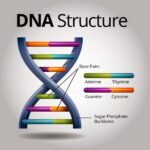Direct-to-consumer (DTC) genetic testing has burgeoned into a multi-billion dollar industry. Individuals spit into tubes, mail them off, and await revelations about their ancestry, predisposition to diseases, and perhaps even obscure personality traits. This ease of access and the alluring promise of self-discovery prompt a common question: what exactly happens to your genetic data after it lands in the laboratory?
The initial and most obvious utilization of your DNA lies in generating the very report you paid for. Companies employ sophisticated algorithms and extensive reference databases to analyze your DNA sequence. These analyses reveal insights into your ethnic origins. They might identify specific genetic markers associated with particular geographical regions. This process involves comparing your DNA against a vast library of DNA samples from around the world. The more comprehensive the database, the more refined and accurate the ancestral estimates become.
Beyond ancestry, many DTC companies also offer health reports. These reports assess your genetic risk for various diseases, from late-onset Alzheimer’s disease to certain types of cancer. This involves identifying single nucleotide polymorphisms (SNPs). SNPs are variations at single positions in a DNA sequence. Specific SNPs are known to be associated with increased or decreased risk for particular conditions. The interpretation of these results requires careful consideration of penetrance. Penetrance refers to the proportion of individuals with a specific genotype who actually express the associated phenotype. It’s not a definitive diagnosis, but rather an estimation of increased or decreased risk, relative to the general population.
However, the utilization of your genetic information extends far beyond the personalized reports you receive. Anonymized and aggregated genetic data becomes a valuable commodity for research. Pharmaceutical companies and academic institutions leverage these datasets to identify novel drug targets and improve our understanding of disease mechanisms. This de-identified data allows researchers to examine the genetic underpinnings of complex traits and diseases. Think of it as unlocking a treasure trove of biological information. The scale of these datasets allows for statistical power that was previously unattainable, accelerating the pace of scientific discovery.
This data aggregation often fuels genome-wide association studies (GWAS). GWAS examine the entire genome of a large group of individuals to identify genetic variants associated with a specific trait or disease. By comparing the DNA of individuals with a particular condition to those without, researchers can pinpoint regions of the genome that may play a role. The results of GWAS can then be used to develop new diagnostic tools, therapies, and preventative strategies.
The de-identification process is crucial. Companies typically remove personal identifiers like name, address, and contact information. However, the very nature of DNA is inherently identifying. Concerns have been raised about the potential for re-identification. This is where advanced anonymization techniques and stringent data security protocols become paramount.
Moreover, the genetic information gleaned from DTC testing contributes to the refinement and expansion of the very reference databases used for analysis. Your DNA becomes part of a growing pool of genetic data. This enhances the accuracy of future reports for other customers. It’s a continuous feedback loop. As more people participate, the databases become more robust and the results more precise.
A significant, and often overlooked, aspect is the potential for commercialization. DTC genetic testing companies are businesses, and like any business, they seek to generate revenue. One way to do this is by selling access to their aggregated and anonymized genetic data to third parties, such as pharmaceutical companies and research institutions. The ethical implications of this practice are complex. Individuals may not fully realize that their genetic information could be used for commercial purposes. Clear and transparent terms of service are essential to ensure that consumers are fully informed about how their data will be used. It becomes a question of autonomy and informed consent.
Law enforcement agencies have also utilized DTC genetic testing databases in criminal investigations. By uploading DNA samples from crime scenes to these databases, investigators can search for potential relatives of the perpetrator. This technique, known as forensic genetic genealogy, has proven to be a powerful tool for solving cold cases. However, it also raises concerns about privacy and the potential for genetic surveillance. The lines between personal genetic information and law enforcement access are becoming increasingly blurred.
Finally, the long-term storage and security of your genetic data is a critical consideration. Genetic information is inherently sensitive and potentially revealing. Breaches of data security could have significant consequences. Robust cybersecurity measures and adherence to strict privacy regulations are essential to protect individuals’ genetic privacy. The responsibility for safeguarding this information rests with the companies that collect and store it.
In conclusion, your genetic information undergoes a complex journey after you send it off to a DTC testing company. It’s not merely used to generate your personalized reports. It fuels research, refines databases, and may even be used for commercial or law enforcement purposes. Understanding the full spectrum of uses is crucial for making informed decisions about whether or not to participate in DTC genetic testing. It allows individuals to weigh the potential benefits against the potential risks and make a decision that aligns with their personal values and privacy concerns.










Leave a Comment